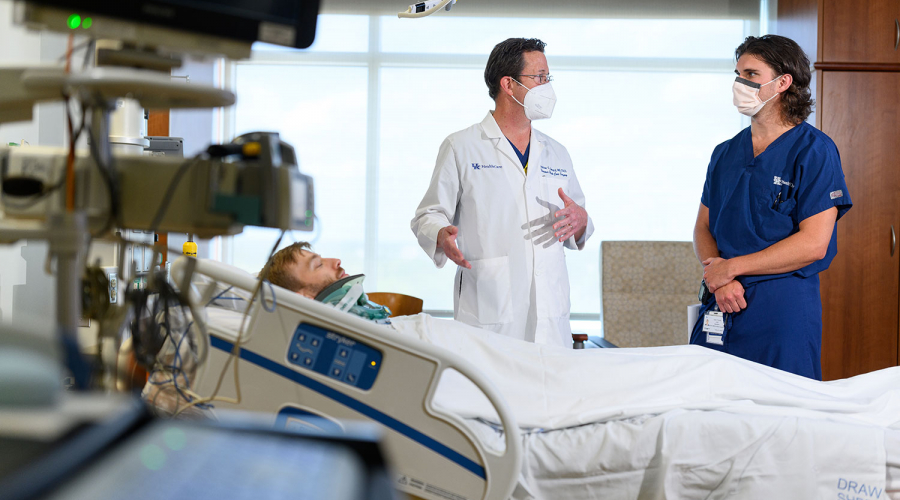
Curriculum
Two-Year ACGME-Accredited Program
The infectious diseases fellowship program at the University of Kentucky is a two-year ACGME-accredited fellowship program. Clinical rotations occur primarily at UK Chandler Hospital, UK Good Samaritan Hospital, Kentucky Clinic, and Lexington Veteran Affairs Hospital, which is connected with UK Chandler Hospital.
Year One
The rotation for a first-year fellow includes 24 to 36 weeks of inpatient rotations, eight to 20 weeks of clinical research, and four weeks of microbiology rotation. During first year, each fellow selects a faculty mentor and scholarly project. The mentor will guide his/her research activity and development during the second year.
Year Two
The rotation for a second-year fellow includes 24 to 36 weeks of clinical research, eight to 20 weeks of inpatient rotations, and four weeks of infection control and antimicrobial stewardship. A second-year fellow is expected to present at least one poster in a national conference such as Infectious Diseases (ID) Week. The second-year fellow is allowed to attend ID Week.
Core Curriculum Topics
- Transplant (bone marrow and solid organ transplant recipients - kidney, liver, pancreas, heart and lungs)
- Infections in leukemia, lymphoma, or other malignancies
- Immunocompromised host
- Bone, joint, and soft tissue infections
- Fever evaluations (including neutropenic fever, fever of unknown origin)
- Pleuropulmonary infections
- Gastrointestinal and intra-abdominal infections
- Sepsis syndromes
- Nosocomial Infections
- Organ system infections of the central nervous system, head and neck, respiratory, urogenital tract, etc.
- Endocarditis
- HIV/AIDS
- Hepatitides
- Infections in pregnant women
- Infections of prosthetic devices
- Trauma-related infections
- Travel and tropical medicine
- Hospital epidemiology and infection prevention
- Antimicrobial stewardship
- Bioterrorism
- Dermatological manifestation of diseases
- Pharmacy topics including pharmacokinetic/pharmacodynamic principles of antimicrobial prescribing, outpatient antimicrobial therapy, antimicrobial resistance, etc.
- Principles of prophylaxis: vaccination
- Introduction to biostatistics
- Tuberculosis and atypical mycobacterial infections
- Sexually transmitted infections/reproductive tract infections
- Vector-borne illness
- Food-borne illness
- Viral, fungal, mycobacterial, and bacterial infections
- Zoonoses
Didactic
- ID fellows core curriculum conference (one every week)
- ID clinical case conference (one every week)
- ID journal club conference (one every month)
- ID research conference (one every month)
Continuity Clinic (HIV and General ID)
Continuity clinic is every other half day clinic per week at the UK and VA clinics for both first-year and second-year fellows. Fellows must follow at least 20 HIV-infected patients and 10 hepatitis C-infected patients.
- Clinical Microbiology (four weeks) - bacteriology, mycology, virology, parasitology, antibiotic susceptibility testing
- UK and/or VA infection control (two weeks)
- Antimicrobial stewardship (two weeks)
- STD (one week) clinical training at University Health Services
- Bone and joint infection consult service (four weeks)
- Transplant infection consult service (four weeks)
- UK Good Samaritan consult service (four weeks)
Conferences
60 percent documented attendance over 24 months is required.